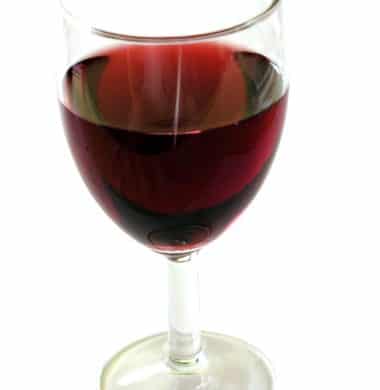Red Wine Heart Health: Is It Good for Your Heart?

Red wine is getting a lot of press recently. Our favorite “study” circulating is that a glass of red is equivalent to an hour in the gym. Of course, that study does not tell you what sort of hour long gym workout a glass of wine is equivalent to, but it has led many people to the land of blissful Burgundy workouts. When it comes to what causes heart disease, there are indications that red wine can help reduce risk.
While many may rejoice hearing that red wine does have some healthy benefits for your heart, we would not promote the drinking of alcohol. Too much alcohol can be very harmful to your overall health. And, if you have suffered from a weak heart of heart failure, you should avoid alcohol entirely. Same is true if you take aspirin daily. Also, there is still a lot of research to be done on the health benefits of red wine, as many studies have still only been conducted on mice. But, some of the research does look promising. Overall, though, moderation is the key. If your doctor allows, a glass of wine at dinner may actually have some tangible heart health benefits.
The Heart Healthy Benefits of Red Wine
Red wine contains antioxidants called polyphenols. A particular polyphenol called resveratrol found more in red wine is what has everyone buzzing about health benefits. Resveratrol comes from the skin of the grapes. Because red wine is fermented with grape skins longer than white wines, red wines contain more resveratrol. So, you could, potentially, get some of the same health benefits simply by just eating grapes or drinking grape juice. Other foods that have resveratrol are peanuts, blueberries and cranberries.
Some believe that resveratrol helps prevent damage to blood vessels, reduces low-density lipoprotein (the “bad” cholesterol) and prevents blood clots.
Most the research has been done on animals, not humans. But research conducted with mice indicates that the antioxidant helps protect against obesity and diabetes, both of which are risk factors when it comes to heart disease. And, to get the same results of the mice, a person would have to drink more than 1,000 liters of red wine every day. Hence, doctors are a wary of such an endorsement!
In research on pigs, resveratrol was seen to help improve heart function and the body’s ability to use insulin. Again, however, this was not tested on humans.
Other research has shown the antioxidant may help reduce blood clotting and inflammation. Both of these are factors when it comes to heart disease. But, more research is still be conducted to determine if the resveratrol was what caused the reduced risk. One study did, however, indicate that resveratrol may actually reduce the positive effect of exercise on the heart in older men.
How to Use This Information
Clearly, the jury is out on red wine. It may help with lowering cholesterol, prevent artery damage and more, but there is no definitive proof on humans. And, moderation is really the key. A glass at dinner every now and then is likely ok, if approved by your doctor. However, wine will not replace eating healthy and exercise. If you have questions about heart health and eating healthy, be sure to look into one of our many classes!
- 6 Tips for Exercising Outdoors with a Heart Condition - May 19, 2025
- Lifestyle Changes That Can Help Manage Arrhythmia - April 30, 2025
- Common Treatments for Peripheral Vascular Disease - April 23, 2025
Sign Up
As with any health concerns, your specific treatment program should be discussed thoroughly with your primary care physician as well as any specialists who may need to be consulted – like a cardiologist.
Sign Up
